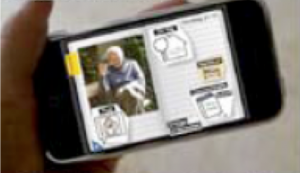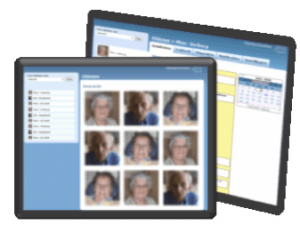Programme
Sessions overviewConnected Care: supporting caregivers through awareness displays
Format: Oral presentation 20 min | Language: Dutch | Tags: psychology, social
Speaker: Martijn Vastenburg | TU Delft
Abstract
Professional care and informal care enable elderly people to live in their own homes for a prolonged period of time. From a distance, however, it can be hard to assess the actual care needs. The findings from two design explorations into the use of awareness displays to support professional and informal caregivers are presented. In two case studies, the researchers not only considered functional requirements, but also the context of use and the human values. The first case study focused on professional home caregivers. The findings suggest that professional home caregivers are primarily looking for systems that enable them to be better prepared for the home visits, and to provide the right care at the right time. The second case study focused on informal caregivers. Participants indicated that they were often very concerned, and that an information- and alarm based system could amplify their concerns. Furthermore, care tasks are often distributed within a group of informal caregivers. A prototype consisting of sensors and an interactive photo frame linked to an iPhone application was developed to emphasize the human-to-human communication as part of the awareness information. The findings from the field studies suggest that awareness displays can not only contribute to the efficiency of the care process, but also to peace of mind, both for caregivers and care clients.
About Martijn
 Martijn Vastenburg is an assistant professor in designing smart products and environments. He has a MSc in Computer Science and a PhD in Industrial Design Engineering. His main interest is in design-oriented research in the areas of living-routine-aware products and ambient assisted living. At present, Martijn is the project leader of a 4-year research project Independent at Home, he supervises MSc projects, is involved in educational activities, and is working on new project proposals.
Martijn Vastenburg is an assistant professor in designing smart products and environments. He has a MSc in Computer Science and a PhD in Industrial Design Engineering. His main interest is in design-oriented research in the areas of living-routine-aware products and ambient assisted living. At present, Martijn is the project leader of a 4-year research project Independent at Home, he supervises MSc projects, is involved in educational activities, and is working on new project proposals.
Research themes:
- situated product behavior (including activity-awareness and routine-awareness)
- design methodology related to designing context-aware products
- modeling user experiences
- products that improve in time
- motivational and persuasive interfaces
Application domains:
- ambient assisted living
- sustainable living (e.g., stimulating energy preservation)
- home automation and communication
Thank you
Thank YOU for being part of The Web and Beyond 2010: Proximity. Curious for reviews and photos? Read the latest updates.

